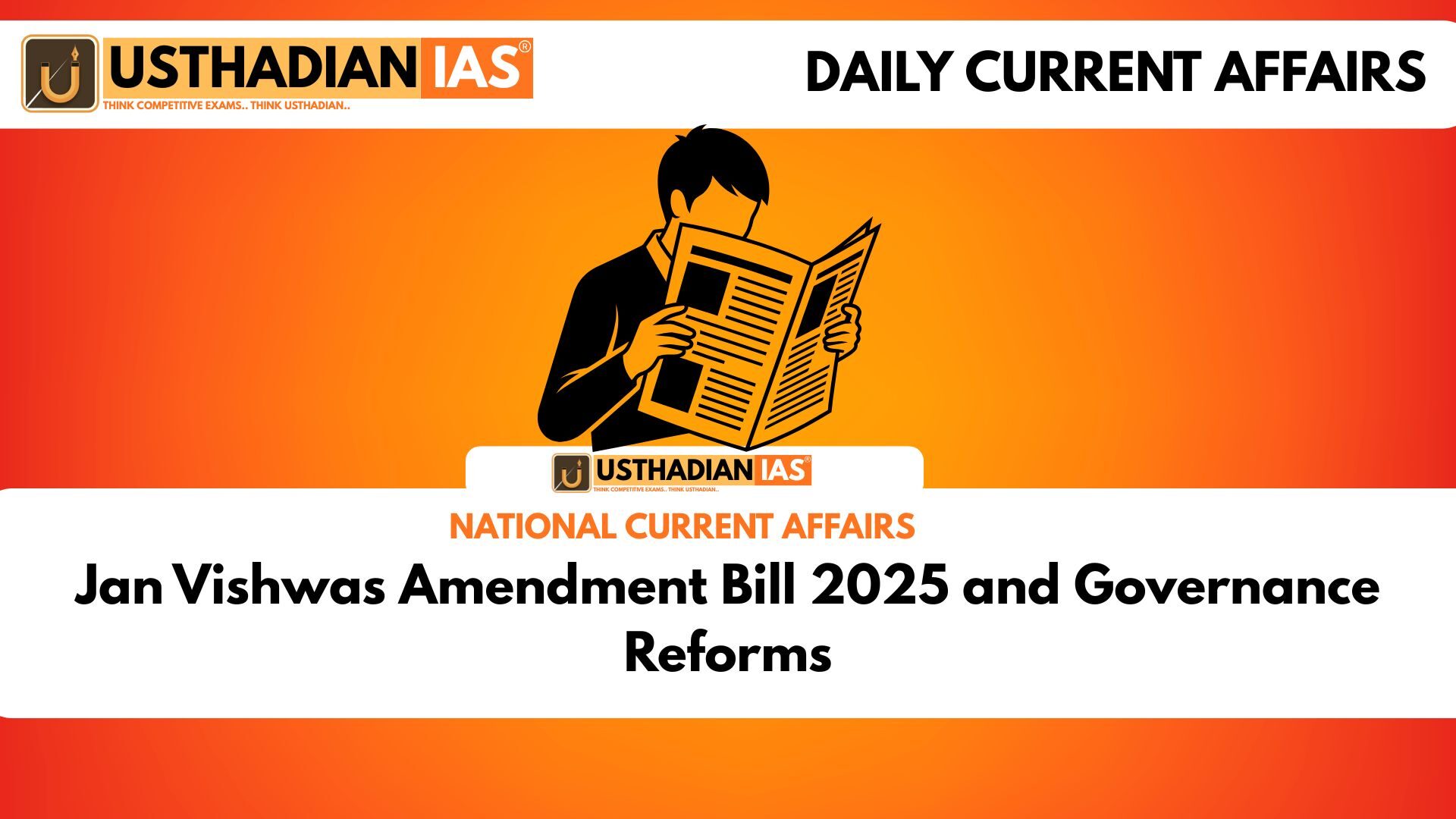Introduction
Jan Vishwas Amendment Bill 2025 and Governance Reforms: The Jan Vishwas (Amendment of Provisions) Bill, 2025 was introduced in the Lok Sabha to strengthen the principle of Minimum Government, Maximum Governance. It proposes 355 amendments across 16 Central Acts handled by 10 Ministries and Departments. The Bill seeks to simplify compliance, build trust in governance, and improve the Ease of Doing Business (EoDB) and Ease of Living in India.
Static GK fact: The Lok Sabha is the lower house of India’s Parliament and consists of 543 elected members.
Background
The Bill follows the Jan Vishwas Act, 2023, which had already decriminalised 183 provisions across 42 Central Acts. The 2025 amendment expands this reform by targeting wider legislative areas for simplification.
Static GK fact: The Jan Vishwas Act, 2023 was passed in July 2023 with the aim of promoting trust-based governance.
Key Features
The Bill decriminalises 288 provisions, replacing imprisonment with monetary penalties or warnings. This ensures that minor defaults do not result in excessive punishment.
Four laws—Tea Act, 1953, Legal Metrology Act, 2009, Motor Vehicles Act, 1988, and Drugs and Cosmetics Act, 1940—which were partially amended in 2023, are again taken up for further reforms.
Static GK fact: The Tea Act, 1953 governs the tea industry in India, one of the largest tea producers globally.
Rationalisation of Penalties
The Bill introduces graded penalties, ensuring proportionate punishment. Repeat offenders will face stricter financial penalties, while first-time contraventions in 76 cases under 10 Acts will attract only a warning or advisory.
Static GK fact: India’s Legal Metrology Act, 2009 regulates weights and measures to protect consumer rights.
Ease of Living Enhancements
Provisions under the New Delhi Municipal Council Act, 1994 and Motor Vehicles Act, 1988 are updated to directly benefit citizens. This reflects the government’s broader push for ease of living reforms in urban governance and mobility.
Streamlined Adjudication
The Bill empowers designated officers to impose penalties through administrative processes, reducing the load on courts. This marks a shift towards efficient governance without lengthy litigation.
Static GK fact: The Motor Vehicles Act, 1988 is the principal legislation regulating road transport in India.
Automatic Penalty Revision
A unique provision ensures fines will increase automatically by 10% every three years, avoiding the need for new legislation and maintaining deterrence.
Static GK fact: Automatic escalation of penalties is a practice followed in several developed economies to keep laws relevant over time.
Static Usthadian Current Affairs Table
Jan Vishwas Amendment Bill 2025 and Governance Reforms:
| Topic | Detail |
| Bill Name | Jan Vishwas (Amendment of Provisions) Bill, 2025 |
| Introduced In | Lok Sabha |
| Amendments Proposed | 355 across 16 Central Acts |
| Ministries/Departments Involved | 10 |
| Key Objective | Ease of Doing Business and Ease of Living |
| Provisions Decriminalised | 288 |
| Key Acts Amended | Tea Act 1953, Legal Metrology Act 2009, Motor Vehicles Act 1988, Drugs and Cosmetics Act 1940 |
| Advisory for First-time Offences | 76 provisions under 10 Acts |
| Penalty Mechanism | Administrative process by designated officers |
| Automatic Penalty Increase | 10% every three years |








